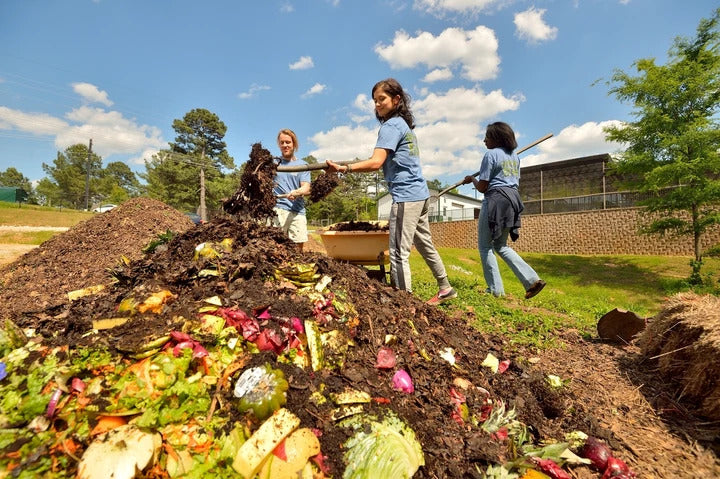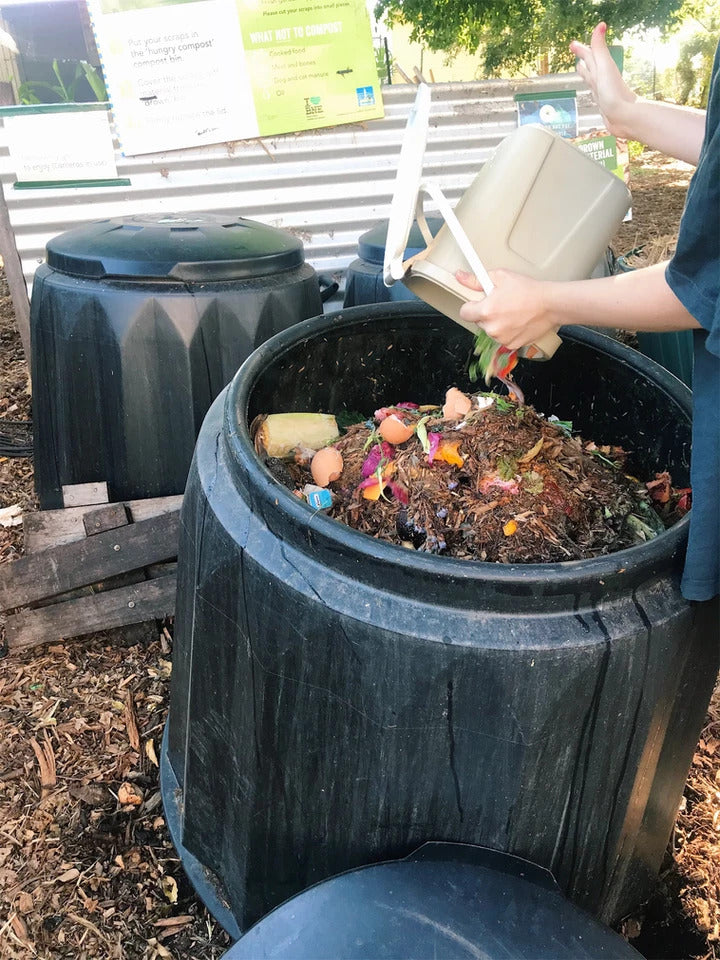From communities to companies, millions of people around the world compost their organic waste into nutrient-rich organic fertiliser.
 These composters are helping the planet by diverting waste from landfill, preventing emissions being generated and run-off leaching into waterways. The fertiliser output replaces polluting, non-renewable artificial fertilisers, improves agricultural land and increases the carbon and moisture retention of soil.
These composters are helping the planet by diverting waste from landfill, preventing emissions being generated and run-off leaching into waterways. The fertiliser output replaces polluting, non-renewable artificial fertilisers, improves agricultural land and increases the carbon and moisture retention of soil.
So let’s check out how and where these compost champions are changing the world.
San Francisco
A list looking at global composting would be remiss to not mention the city leading the way and it’s all thanks to the San Francisco Mandatory Recycling and Composting Ordinance (which definitely needs a better name). This law requires all citizens of San Francisco to separate their general, recyclable AND compostable waste, which is then collected and processed.
It’s no wonder that the bay city sends less trash to landfill than any other major U.S city, diverting about 80% of it’s waste.
Bangladesh
Waste Concern is a pioneer of decentralised composting, which is the composting of large amounts of organic waste using small, spread-out facilities, rather than one massive, centralised facility. While there are pros and cons to both, in developing countries building and operating large composting plants is both high-risk and capital intensive. Enter Waste Concern.
Started in 1996, Waste Concern establishes these small, community-based facilities and educates people to operates them, generating income, creating jobs and cleaning up. Their work has reached 130,000 people in Bangladesh, across 15 cities, and their model has been successfully replicated in several other Asian countries.
Austria
Another front-runner is Austria, which takes the number one spot in the world with the highest amount of municipal waste composted. Austria recycles 34% of it’s organic waste using both aerobic compost and anaerobic digestion at over 400 facilities across the country.
Austria has achieved these measures through strategic economic policies that consider every stage in the creation of organic waste, from kitchen to collection.
Africa
African agriculture is in particularly dire straits, due mainly to it being composed of mostly developing countries and a combination of environmental factors resulting in poor soil fertility. Fertiliser is incredibly important for farmers to achieve successful yields but price and availability make artificial fertilisers an unviable option for many.
Compost is one of if not the most promising solution, as organic waste is readily and freely available and the end product of compost provides all the nutrients and moisture retention farmers need. Projects such as Syprobio and JustHope International provide education and tools to farmers across West Africa to set up composting for their farms and secure their livelihoods.

Last is of course what we're doing at Monty Compost Co down in Australia! No matter where you live, composting correctly can be extremely hard which is why we built Monty Monitor to make it easy for you. No mess, no fuss, just fast, clean compost. What's even more better is that Monty is currently on sale and available across Australia and the US! What are you waiting for? Order one today!
Subscribe to stay posted on our development, follow us on social media at Facebook, Instagram and LinkedIn!




2 comments
Ximena Salado Degante
I didn’t like it it was supposed to be around the world 🌍 but it wasn’t but ok ✅❤️🔥❤️🔥❤️🔥❤️🔥❤️🔥❤️🔥❤️🔥❤️🔥👋👋👋👋👋✨✨💕💕😏😏😏🙃🙂🙃🙂🙃🙂
Ximena Salado Degante
I didn’t like it it was supposed to be around the world 🌍 but it wasn’t
Leave a comment
This site is protected by hCaptcha and the hCaptcha Privacy Policy and Terms of Service apply.